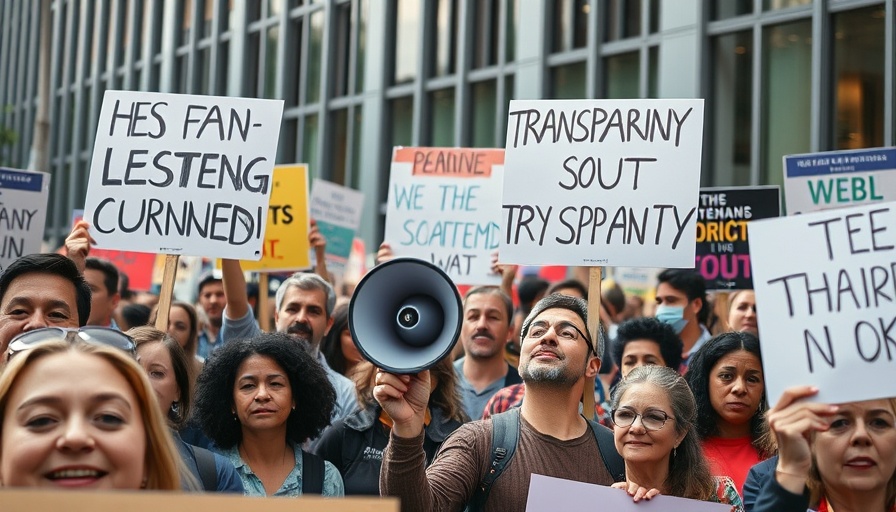
Drivers Take a Stand Against Uber's Fare Transparency
In recent weeks, Uber drivers across major cities have ignited a wave of protests targeting the company's increasingly opaque fare system, known colloquially as the 'black box' fare system. Initially implemented to enhance driver flexibility and operational efficiency, drivers argue that this system leaves them in the dark about how their fare calculations are made, ultimately undermining their earnings.
The Impact of the 'Black Box' on Driver Earnings
This protest comes on the heels of a significant decrease in driver satisfaction, as reported by numerous studies and surveys. Many drivers are finding that their traditional earnings are dwindling due to what they call the "black box" system’s unpredictable fare calculations. Under this system, drivers earn a percentage of the fare without transparency on how the final price is set, leaving their earnings heavily reliant on variables like surge pricing and customer demand that they cannot fully understand or anticipate. A recent Uber study indicated that nearly 70% of drivers expressed concern over their earnings due to this lack of transparency.
The Historical Context of Uber's Business Model
Uber has fundamentally changed the landscape of ride-sharing since its inception in 2009. By continuously innovating their business model, they have challenged traditional taxi services, yet this innovation has occasionally come at the expense of driver clarity and satisfaction. Historically, ride-sharing companies have struggled to balance profitability with driver welfare, often leading to similar protests in the past. An example of this is the backlash Uber faced in 2019, when drivers in cities like Los Angeles and New York City rallied against fare cuts that severely impacted their net income.
Global Response: Insights from International Drivers
While the protests are especially pronounced in the U.S., similar sentiments are resonating with drivers worldwide. Reports from the UK and Germany indicate that drivers there are also grappling with opaque fare calculations. In London, drivers have historically fought for fair wages, leading to regulations that now mandate a transparent fare structure. This international solidarity suggests that the issues faced by Uber drivers are not isolated; they highlight a need for fair employment practices across global markets.
Counterarguments: The Company's Perspective
Despite the mounting criticism, Uber's response has typically emphasized the need for innovation to remain competitive in a rapidly evolving transportation landscape. The company argues that the black box system allows for dynamic pricing that can benefit drivers during peak hours, thereby increasing their potential earnings. As they incorporate advanced algorithms and machine learning, Uber maintains that the ultimate goal is to optimize economic conditions for both drivers and riders.
Drivers’ Demands: Striving for Fairness
Protesters are calling for significant changes to the existing fare structure, including calls for a minimum wage guarantee that corresponds to the rising cost of living in urban centers. Drivers demand clearer communication regarding fare calculations, as well as better customer service support that ensures their voices are heard in disputes regarding fare discrepancies or rush hour surge pricing. The organization 'Rideshare Drivers United' has been pivotal in organizing these movements, urging Uber to adopt a more driver-centric approach.
The Future of Ride-Sharing: A Call to Action
As this issue continues to unfold, the future of ride-sharing is at a crossroads. Will companies prioritize driver welfare and satisfaction alongside their expansion goals? Only time will tell. It is imperative for drivers and consumers alike to unite in advocating for fairer systems that ensure transparency in earnings and foster sustainable practices in the gig economy. Both drivers and riders must make their voices heard. If you're a rider, consider the conditions your driver faces; as drivers push for regulations that protect their rights and livelihoods, consumers can play an integral role by supporting these initiatives.
Taking action together, we can reshape the future of ride-sharing to be equitable and just for all its participants. Join in discussions about driver rights and share your thoughts in support of this evolving industry.
 Add Row
Add Row  Add
Add 




Write A Comment